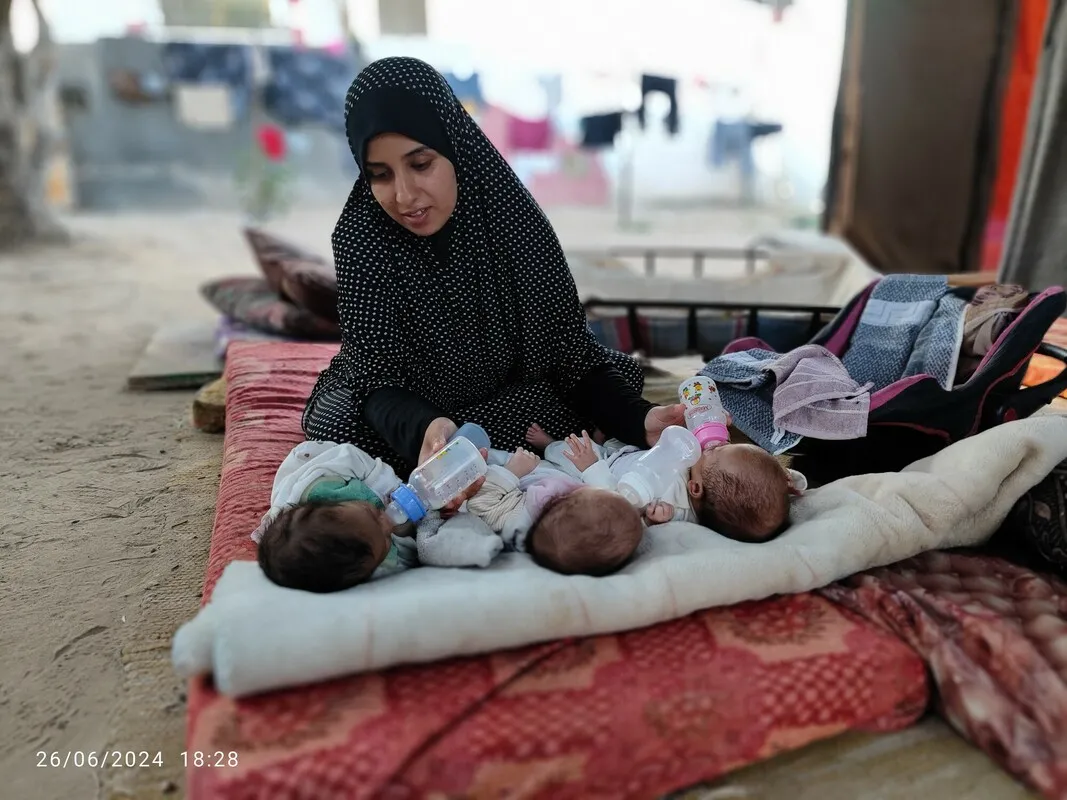“But my children’s needs come first”
UNICEF says that a baby is born every ten minutes in the Gaza Strip. Yasmeen’s are just three of them. Hundreds of thousands of people are suffering under similar conditions in northern Gaza, where Israeli blockades and military operations have brought catastrophe.
Displaced families, like Yasmeen’s, are enduring overcrowded shelters, soaring prices, and limited access to essentials, all while under constant threat of airstrikes.
“I thought the war would end in a week or two,” Yasmeen recalls. “We left with just two outfits, but we still haven’t returned.”
The reality of displacement has made survival incredibly difficult for Yasmeen and others. Without access to proper food, healthcare, or basic items, she is left worrying about her children’s future. Despite her constant fears, Yasmeen remains committed to keeping her babies safe and healthy.
“I suffer so much,” she says. “But my children’s needs come first.”
“We are resisting all the difficult things. But I worry every day for my children’s safety—any flying rock from an airstrike could hurt them.”
She also remains determined to survive.
“We are steadfast,” she says. “And pray for an end to this war.”
CARE was among the first international organizations to respond to the recent Gaza crisis,, distributing essential supplies such as water, medical, and hygiene items. CARE and its partners provided primary healthcare, along with psychological support and medications. CARE and its partners also installed emergency latrines, supported solid waste management, and promoted hygiene awareness. CARE continues to call for an immediate ceasefire, the return of all hostages, and the passage of unfettered humanitarian aid into Gaza.



